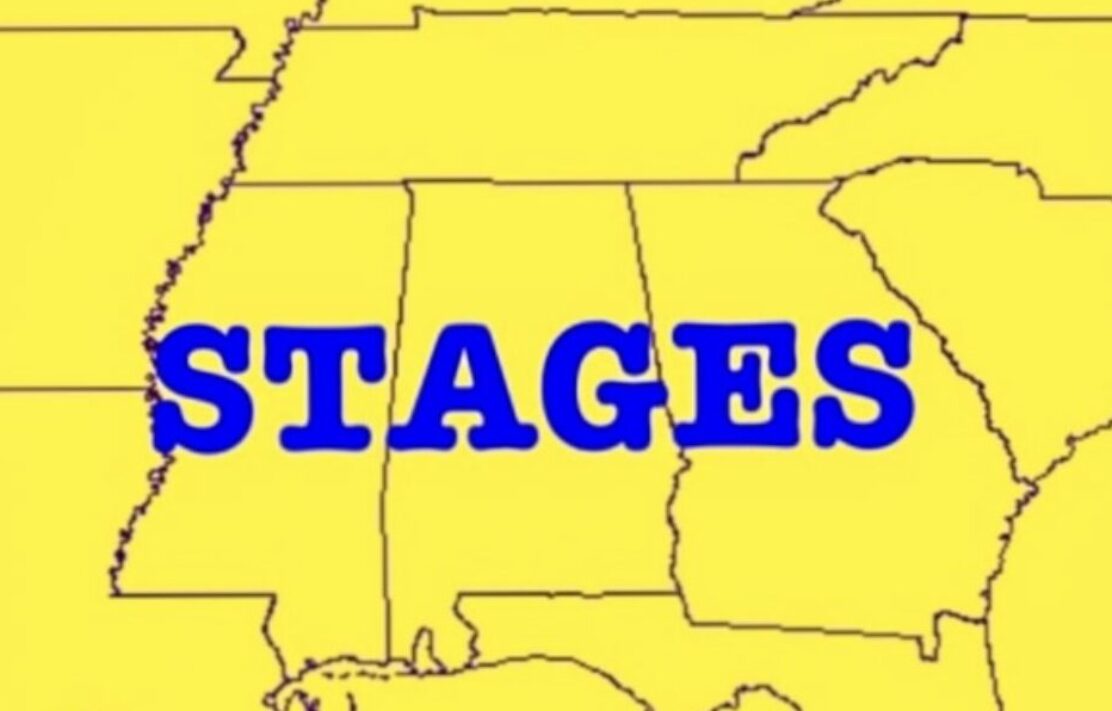By Blake Ells

Jukebox the Ghost formed at George Washington University in Washington, D.C., but the piano-driven rock band has roots across the South. Pianist and vocalist Ben Thornewill grew up in Louisville, Ky., while vocalist and guitarist Tommy Siegel grew up in Richmond, Va. (drummer Jesse Kristin is from Boston). Now the band calls New York City home.
The band returns to Birmingham behind Off to the Races, its latest album released on March 30. Before the visit, Siegel talked about piano rock, the acts that came before them, the band’s writing process and the science of cover versions.
Birmingham Stages: Why aren’t there more rock and roll bands based around a piano?
Tommy Siegel: I’m not sure why there aren’t more piano rock bands. My gut is that it might have to do with the people drawn to a piano versus a guitar. We’re sort of lucky that we have someone in the band that’s a classical prodigy that also just enjoys playing rock music. But I think that’s a rare combination.
Birmingham Stages: Obviously Elton John forged that path, but I guess someone like Ben Folds did a lot to open that door for bands in the last 20 years?
TS: Every generation has that one big piano rock band. There’s Elton John then Billy Joel then Ben Folds then maybe Something Corporate or Jack’s Mannequin qualify for the next one and we are jockeying hard to be the next one after that.
Birmingham Stages: You’ve played on bills with a lot of those guys that you mentioned. Have you developed good relationships with those bands?
TS: A lot of those opening gigs are surprisingly the product of behind-the-scenes booking agents negotiating. I think a lot of it for them is, “What’s a good bill that’s going to bring people out—that fans of both bands are going to like each other?”
But from touring with some of those artists, we did end up becoming good friends. I think it helps for us to tour with other piano rock bands. It draws crowds that are sort of already excited to hear somebody play the piano. It makes for a great opening gig.
Birmingham Stages: Do you write individually or do you get in a room and write together?
TS: We do the Beatle-y method; where we all kind of bring songs to the table and as a band we kind of fine tune it. We’ve also gotten serious about self-recording and producing. A lot of the times we come to the table with a fairly complete song and then just do the fine tuning as a band.
Birmingham Stages: Years ago, you turned “It’s a Beautiful Life” into a lounge song. Have you since put your own spin on other songs? How do you choose the songs that you want to cover?
TS: It kind of depends song by song. These days, every year at Halloween, we do a short little tour called “Hallo-Queen” where we a set of our own stuff, take a break, get into costume and then do a full set of Queen dressed up as the band. For those, we don’t really reinvent the wheel; those songs are perfect as is. We do the best we can just to execute them.
But yeah, for some songs, we try to reimagine them for our band. We sometimes do Shania Twain’s “Man, I Feel Like a Woman,” and that requires some reinventing on our end.
Birmingham Stages: Have you taken “Hallo-Queen” on the road or is that just a New York City thing?
TS: We haven’t done a full tour of it because it’s exhausting to do more than a handful of shows. Last year, we did four of them, so we did San Francisco, Chicago, New York and Philly. We try to spice it up.
Birmingham Stages: You waited a little bit longer this time between records—what was that process and why did you take your time a little more with this one?
TS: It was a combination of factors that made it a long wait. One was that we were on a record label called Cherrytree which went defunct; it was part of Interscope. So we were making the record independently, which is just a little slower. If you’re on a label, the label just cuts a check to a producer and you just finish it in one big chunk.
But since we were self-financing our own record, it was a longer process; figuring out who the right [producer] would be and piecing it together from different sessions. It took a little longer on the songwriting end as well. We always come in with way too many songs; this time we had about 75 songs that we whittled down to the ten that are on the record.
I’m always amazed. Every time you make a record, you think it’s going to come out a year earlier than it actually does. This time was no exception.
Birmingham Stages: How much more difficult is it being heard now than it was ten years ago when you started recording? Or is it easier?
TS: We’re used to having the rug pulled out from under us every few years. When we were first starting out, it was all about MySpace. We were adding people, sending people tracks, all that stuff. We even booked some tours on MySpace. Then it was all about Facebook Groups and then those ended. Then it became Facebook Pages and Instagram and Twitter then streaming services came.
We’ve just grown to expect the unexpected and you have to adapt. That’s part of why we emphasize the live element and the touring element and putting on a good live show. Because that’s sort of the only thing you can count on these days. I think if you’re banking on making money on recorded music, you might want to rethink it.
Birmingham Stages: Touring is the one thing that’s never really changed, right?
Yeah, thankfully, people still like going to concerts and buying concert tickets. As the economics of music purchases have shifted toward the miniscule, people still like going to shows and they still like wearing t-shirts. That’s where we place our bets.
Jukebox the Ghost comes to Saturn on Saturday, April 14 with special guests The Greeting Committee. Doors open at 8 p.m. and the show begins at 9 p.m. Tickets are $15 and can be purchased at www.saturnbirmingham.com
